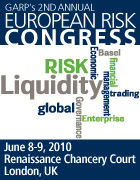A New Regulatory Regime, and no perfect solution for a problem that is not well defined
Do not envy Tim Geithner. There is simply no chance to get it all right all at once – in form, content, and effectiveness. And the critics have it too easy. Some will call new regulations as not far reaching enough and unable to guarantee against future financial meltdowns. Others will want to preserve complete freedom of the derivatives markets and howl about the baby versus the bathwater. And all will wring hands about market constraints and cost.
Do remember that derivatives before they went toxic, were good creative ways to hedge exposures, to isolate asset allocation decisions from risk decisions, to synthetically overcome barriers to market access. Till parts of the market went rogue, and we had too much of a good thing. And, we also found out that self regulation is a myth in competitive markets in the face of “let’s make revenues Monday, manage costs on Tuesday, and oh let’s do get a Risk report on Wednesday; everybody else is doing it”.
Most will agree ‘some’ incremental regulation is needed. What it will look like, how much of it, and how effective it will be has yet to be defined. The challenge is of course in the balance – we want just the right amount to curb bad innovation, to stifle system-wide blowups, and with incentives for organizations to institutionalize solid risk management principles.






11 comments:
It's a versatile tool, how it is used depends upon the user. Regulation is only needed of leveraged firms - they have borrowed money and need to be protected - and can be done under a sensible regulatory capital framework. Lower capital for exchange traded and higher capital for over-the-counter versions will drive trades that can be standardized to exchanges, and bilateral or unilateral cash collateralizing. Prescriptive regulation would choke off innovation and the flexibility this market is valued for
If existing regulations are not enforced, it's not obvious why more regulation is needed or would be anymore effective in limiting fraudulent activity.
Too much regulation will promote the search of new ways to overcome restrictions placed by blindly regulating the derivatives market. We will be exposed to more Black Swans. Why do we always want to work from the hindsight.
Maybe some securities that are too subjective and difficult to analyze should not be available for sale and/or should incorporate extra cash-reserve protection.
I think regulation and government overview would be good to make sure banks do not risk clients' and tax payers money. Regulators have to be very knowledgeable.
Over the past few years, derivatives earned themselves a bad reputation, and should be regulated to an extent. However, they are great tools for hedging risks and should not be eliminated completely. Regulation of derivatives should be in place to increase transparency and more control over the product. The regulations should not limit the growth and innovation of the derivatives products.
Liberty is a good thing, howver, it may be sometimes too free to control. Most of the experts suggest the completely competitive market is the persuit eventually. But, it is not utally a good thing if that field is fulfilled.
Historically regulation has been reactive rather than proactive, it is in effect a lagging indicator of what is wrong with an "after the fact" attempt to correct it. When something is then passed in terms of regulatory reform, the market has already moved beyond, either anticipating the change and morphing into something else, or having searched out a regulatory environment that would allow the practice to continue without material change.
Given that historical background, regulatory change may have to overcompensate, anticipating what might occur. In that regard, isn't the probability high that regulatory change will overreact? Possibly mitigting against innovation?
There is also the issue of politics and politicans overreacting in order to appease their voters.
All the above effectivly mitigates against regulatory reform that would be long lasting and balanced.
So, the challenge is, how to do it right and ensure there is global cooperation so that regulatory arbitrage does not provide loopholes. A tough issue!
More regulation is required.
But more importantly,there is greater need for improved Market Discipline-Let's be less Greedy.
Regulation is fine, but it needs to be intelligently constructed and applied by regulators who are in tune with the business and industry practice and who are not petty bureaucrats. Ideally the regulator should be someone with a flair for innovative thinking – but this idea in itself is a paradox. No innovative financial thinker would ever become a regulator!
It’s the old problem of the “business” versus “risk management” and when the bottom line is at stake the business always wins!
futher regulation? hmmm? not a major issue....the key issue is to secure and to reinforce and to make compulsory a minimum amount as performance bond (liquid cash)serving as a warranty for the asset or the issuer
http://rvanegas.blogs.terra.es
Regulation is good but the issue in the global meltdown was more on attitude and greed. let the operators extol integrity and tranparency. Regulation without integrity and positive attitude will achieve nothing.
Post a Comment